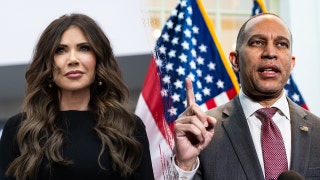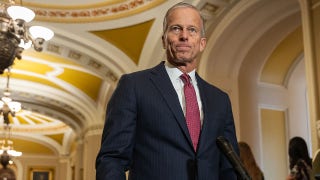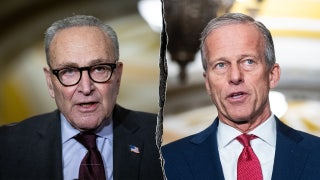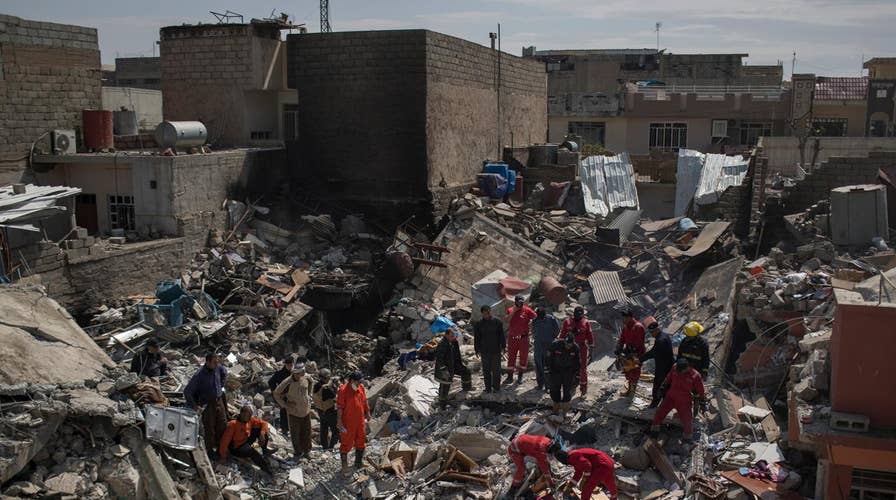Throughout the long history of what is now the Republic of Iraq the nation has been routinely invaded, occupied and battle-torn by both foreigners and its own despotic regimes, the most recent being ISIS. But once the Muslim extremists are driven from the country – which is likely to be the case in a few months or less – will the nation be ready to finally stand on its own? Or is a continued U.S. military presence a security necessity?
"We are here at the request of the government of Iraq to aid in the defeat of ISIS," a U.S. military spokesperson for Operation Inherent Resolve, the official name of the mission to defeat ISIS, told Fox News. "Future operations will be dependent upon the needs of the government of Iraq."
However, Defense Secretary Jim Mattis took a more affirmative stance last month when he testified before a Senate Appropriations subcommittee, stating that it would be an error to cite victory and simply leave, as was the case in 2011, and then "find the same lesson." Similarly, Secretary of State Rex Tillerson has voiced the importance of retaining U.S. troops to avoid an ISIS-type re-emergence.
While these U.S. voices are in agreement, the matter deeply divides the Iraqi people themselves.
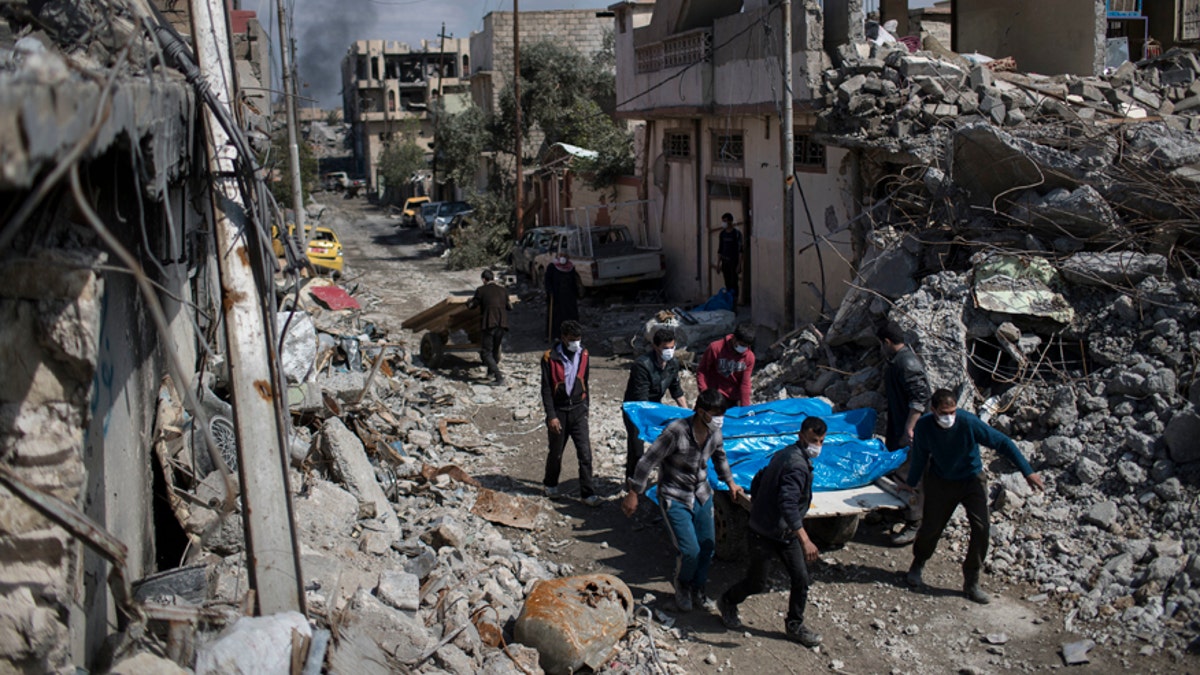
Residents carry the body of several people killed during fights between Iraq security forces and Islamic State on the western side of Mosul, Iraq, Friday, March 24, 2017. Residents of the Iraqi city's neighborhood known as Mosul Jidideh at the scene say that scores of residents are believed to have been killed by airstrikes that hit a cluster of homes in the area earlier this month (AP Photo/Felipe Dana) (AP)
Nseeif Al-Khattabi, governor of the Holy Karbala Province Council, told Fox News that he is for political and diplomatic relations with the U.S. rather than a military one.
“Let us pick our destiny,” he said, noting that it would be better for Iraq not to have outside interference.
Muoaed al Bahadely, a 30-year-old from Baghdad, said that he is against the U.S. presence because it is a “clear game to create terrorist groups that say they are Muslim, but it is orchestrated to destroy Islam” – citing the American creation of the 1970’s Mujahedeen to fight the Soviets in Afghanistan.
However, the majority of Iraqis that Fox News spoke to across the country seemed to be in favor of the U.S. remaining for the longer haul.
“If America had stayed after 2011, nothing like ISIS coming in would have happened,” lamented Baghdad native Ahmed Naeem. “Let’s stop the cheap talk and agree that the American withdrawal cost us heavily, and the blood of our kids.”

Muoaed al Bahadely expressed concerns about U.S troops remaining in Iraq post-ISIS
Moreover, Mazan Obedi, a 28-year-old from Baghdad, advocated for U.S. troops remaining in the “style of Japan, Germany and Korea” after WWll and Korean war, respectively, “not only so ISIS cannot come back” but also to “put pressure on Saudi Arabia, Turkey and Qatar” to not sponsor terrorists. Masereen Saed also said those who “tried to sell heroism against America” – like Cuba – ultimately fared far less well than the likes of other countries that aligned with the U.S.
And Yahiya Akbar, a 24-year-old college student, cited monetary reasons for supporting the U.S staying.
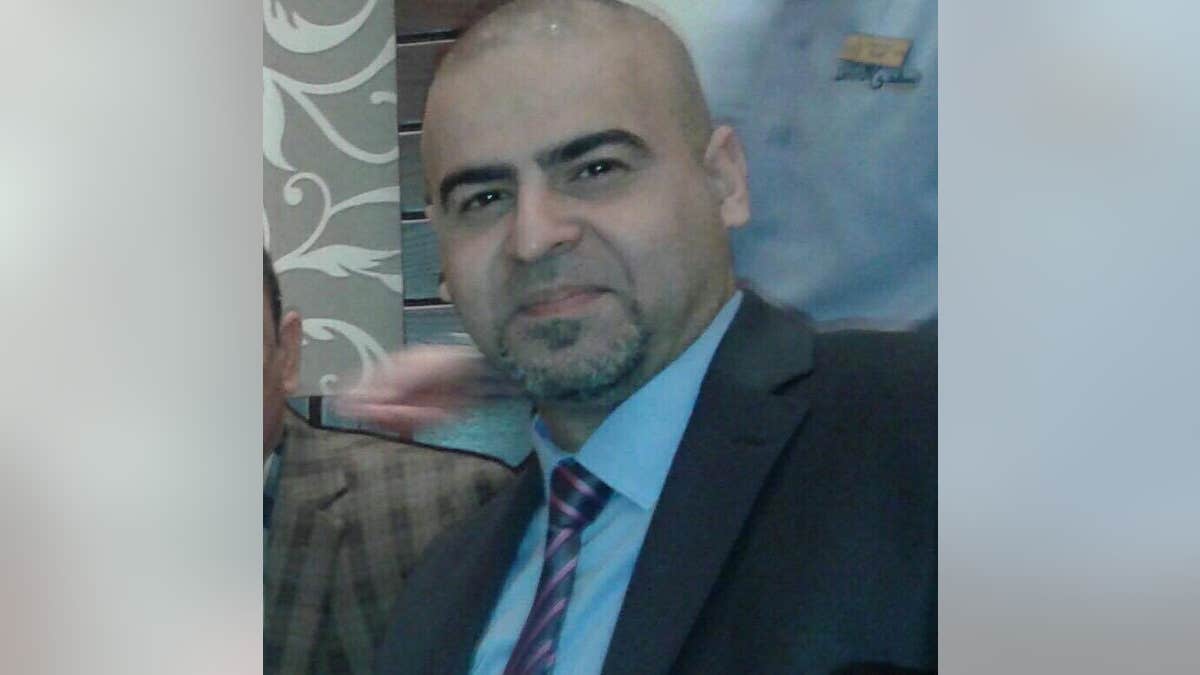
Ahmed Naeem lamented the 2011 withdrawal of U.S troops from Iraq, insisting that it cost the people of his country heavily.
“Without America, we will suffer economically,” he stressed. “We should use America to train our soldiers and our army.”
Others, such as Marwa Alzede, 25, a recent university graduate who studied geography, supported the U.S. military lingering on – but not in a “continuous, forever way” – just until their own army is truly strong and unified enough to “answer to all the challenges that surround the country.”
“We don’t want to be part of the threats that come to America from our neighboring countries,” she explained. “Then we have to pay the price.”
On a visit to the U.S. in late March, Iraqi Prime Minister Haider al-Abadi said that he too supports keeping a U.S. foothold for the longer term.
"The fight against ISIS’ presence in the country will require a longer-term, sustained effort that goes beyond the major combat operations currently underway," Tom Basile, political commentator and author of "Tough Sell: Fighting the Media War in Iraq" concurred. "We need a sustained, supportive presence in the country to protect the Iraqis and our interests in the region."
One high-ranking Iraqi intelligence official, who was not authorized to speak on the record, pointed out that even if the U.S. does stay, it's uncertain what the role will be.
“We want a strong DOD strategy to help the Iraqi Army,” said the source, adding that Iraqi officials also want assistance with a greater “emotional” impact, such as assistance with hospitals.
As it stands, the U.S. government gave $58.8 million to Iraq last year, designated to assist with everything from peace and security to humanitarian and social services to education and governance.
ISLAMIC STATE ATTACKS IRAQ POLICE BASE, 1 KILLED
LIFE INSIDE ISIS CAPITAL RAQQA: IMPOSSIBLE TO LIVE, IMPOSSIBLE TO LEAVE
Nonetheless, a continued American military presence could come with a high price for U.S. military personnel.
One young professional named al-Haidery who identifies himself as a "technocrat" aligned with the movement championed by prominent Iraqi Shi'ite Muslim cleric Moqtada al-Sadr, warned that U.S. troops will "of course" face steep violent resistance.
"America is interested only in oil and control of the region. It considers Iraq as a barrel of oil and strategic location to build its military bases," the technocrat said. "The great danger facing U.S. forces in Iraq if it remains is the armed groups supported by Iran. These groups have evolved a lot."
They have evolved, al-Haidery said, from even the post-2003 war days, in which the Tehran-backed militias were responsible for some 500 U.S. service member casualties.
Danger from Iranian-sponsored militias is recognized by people outside al-Sadr’s circle.
"Troops should stay," Loag Husain, author of the Iraqi political history book "Dozens of Years of Chaos" said. "But how can they deal with Iranian militia in Iraq? That will be the question."











